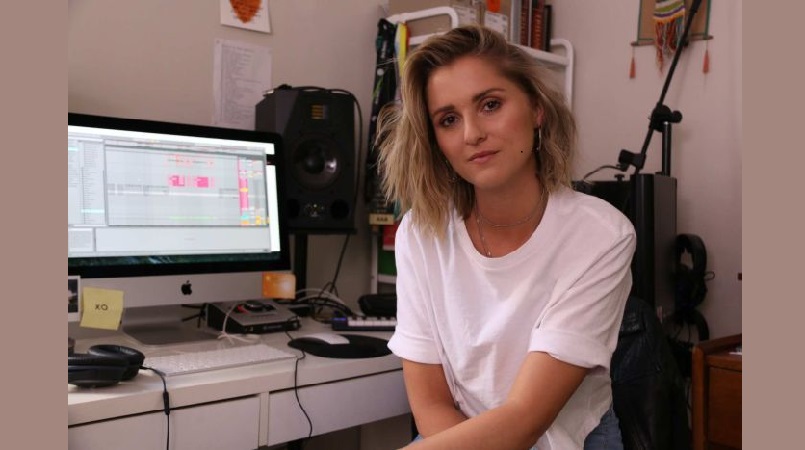
Scroll through your favourite playlist on your phone. Chances are the majority of musicians are men.
Turn on your radio — it is statistically likely you'll hear music made by a man.
Go to a summer music festival. Is the headliner a man? Probably. The Australian music scene, like many industries, has a gender problem.
When triple j's Hack crunched the numbers, it discovered last year's Splendour in the Grass and Falls Festival booked almost 70 per cent male acts. That number blew out to 90 per cent at Listen Out and Stereosonic.
So what is it like to be woman making music in Australia? Musician KLP has been doing it for years, and frankly, she's sick of the question.
"I've got a boyfriend who is a musician as well, and he never gets asked the kind of questions that I get asked in interviews. He never gets asked his age, he never gets asked what it's like to be a male DJ," KLP said.
Earlier this year, new festival Spilt Milk announced a line-up with 16 acts. Only one of them was female. KLP was unimpressed with the "bro-town" attitude.
Soon after, Spilt Milk announced several more female acts, with the promoters saying: "You spoke, we listened. Opportunities for female artists in the music industry ARE less than those for men."
Adam Lewis books musicians for venues across Sydney, as well as boutique music festival Secret Garden.
He says over the past few years, he has seen the industry start to become aware of gender imbalance.
"You're seeing festivals come up with these really blokey line-ups — we saw that in Australia with Soundwave and internationally with festivals like Redding," he said.
"Really masculine line-ups, and there is a push back on it in a way that there hasn't been before."
He says if bookers are not conscious of it, it is easy to gravitate towards comfort zones, and end up with a lopsided line-up.
"Men get put on pedestals for doing things that women can do just as well, throughout musical history and I think that reverberates through what we see in live music culture and festival culture to this day," he said.
The end of Spilt Milk's statement was addressed to the people "using hateful, bigoted, sexist and misogynistic comments online … your negative attitude has absolutely no place at our event and your money might be better spent on education".
It is a clear reference to how the internet can also be a dark place for aspiring female musicians.
A look at the comments section on a video from KLP and several female musicians on her all-girl KLParty tour is proof — one comment reads: "You can all go drink some bleach, f*** you all kill yourselves".
Young female musicians 'disheartened'
For teenage girls, inequality in the industry can be intimidating.
Jennifer Andrade, 17, and Jade Diaz, 18, are part of All Girl Electronic, a Western Sydney program encouraging young women to make music, and address gender imbalance in the industry.
They have found it hard to be taken seriously, previously.
"They don't really see female music and art as valid, because it's stereotyped to be like, this is very girly, it's not serious. They see it as stupid but it's really not," they said.
Jennifer and Jade have grown up around line-ups featuring predominantly male artists.
Splendour in the Grass 2015 was 68 per cent male, 32 per cent female, and Listen Out 2015 had a line-up that was 91 per cent male acts to 9 per cent female.
Jennifer and Jade say while at first they were discouraged by the statistics, now they want to do something about it.
All Girl Electronic is the brainchild of Julia Mendel, who first worked on a music production program for young people of any gender — but it was only boys who turned up.
She decided the best way to get young women to participate was to tailor it just to them.
"We've found that this group has really thrived. There has been no ego, they leave that at the door, they are really supportive of each other. I think that is something that being all women has helped to foster," she said.
The program was set up in response to gender inequality across the industry.
Only 1 in 5 musicians registered with ARPA is female, 80 per cent of indie labels are managed by men, and women make up a third of ARIA nominations.
Ms Mendel wants to get young women in all aspects of the industry — not just as performers, but as producers, and leaders.
"It is important to help build their confidence in producing music, not just being in a performance role. And also taking ownership of those technical skills," she said.
"Ultimately it's about looking forward and empowering these women to I guess change the industry into one that they want to be a part of."
